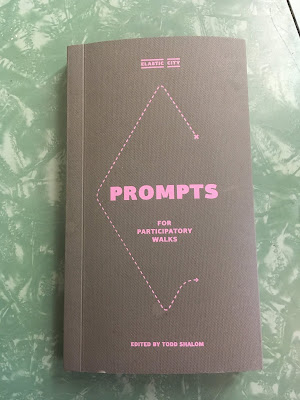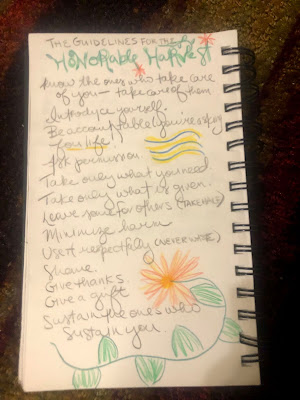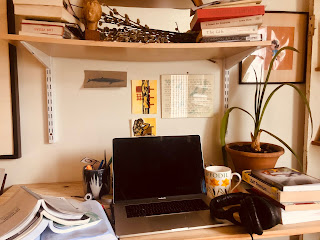The first person in Massachusetts died from COVID-19 yesterday, an 87 year old man from Winthrop.
When my friend Penelope's mother, Edie, died at 94 a few years ago, she was appalled that she had to fill out the cause of death on the death certificate and that "old age" was not an option.
"What do you mean, 'What did she die of?'" she would rant to anyone who would listen. "I wish I could have helped her depart sooner, when she asked to, before the dementia and incontinence set in, but that would be murder in this country." Penelope danced with the Trisha Brown Company, lived with Robert Rauschenberg and at the Chelsea Hotel, was tight with Gordon Matta-Clark, gave her inheritance to the Abenaki Tribe of Vermont. She's lived on a homestead and grown about 85% of her own food since the early 1990s. Her origins remain a mystery to me. At various times, she's told me that her father was killed in Virginia for being an anti-segregationist, that she converted to Sufism in the 1980s, that she has premonitions and dreams that derive from her commitment to vision questing and sweat lodging in the woods. She protected me at a time when I needed it, and I lived with her for a summer as a farm intern and have visited often over the past ten years. Penelope is like a light for moths who can't find the front porch – I've sent my best friends to live in the house with her too, learning to talk to herbs and gardens and goats. We harbor dreams of co-owning the land some day.
I saw Penelope last about a year ago. Josh and I were driving to Montreal to get engaged, and we stopped by on our way because my mother asked for her ashes to be scattered at Lake Willoughby, not far from Penelope's house. My mother died when she was 66 and I was 30, she a young senior citizen and I not-so-young, and I always feel like I have to justify that by telling people, "She was very sick." We scattered her ashes on the freezing, windy lake and they blew up into my boots, my hair, my face. I started laughing, and so did Josh and Penelope, who was wearing a men's shirt around her head instead of a hat and looked tiny against the grey and white day. Penelope said a prayer for my mother's ashes to "The Great Earth Mother." She forgot my mother's name. We laughed again. I sang a song and cried:
"Oh lord, my God
I pray that these things never end
The sand and the sea
The rush of the waters
The crash of the heavens
The prayer of the heart"
Back at the house, Penelope told us, straight-faced, that she planned on making a career late in life as a coffin-maker because she needed money these days. She had a dream, a premonition – she knew it was her new calling. When Edie died, it was winter and they couldn't get her out of the house right away because the house is too remote and the snow was too thick, so they had a party. She lay in state all night and they built and painted the coffin, got rip roaring drunk, and sent her off in style. "It was such a gift," she said. "I want to give that gift to others."
I've been thinking about the book
Being Mortal a lot lately, a book I return to often. Parts of it make me cringe due to lack of class analysis – the assisted living building he describes as ideal is one of the most expensive in the country and it bothers me that Atul Gawande has become the face of Bezos-care – but the book nourished me in grief. There are
so many good quotes, but here are a few that feel pertinent right now:
"We're always trotting out some story of a ninety-seven-year-old
who runs marathons, as if such cases were not miracles of biological
luck but reasonable expectations for all. Then, when our bodies fail to
live up to this fantasy, we feel as if we somehow have something to
apologize for.”
“For all but our most recent history, death was a common,
ever-present possibility. It didn’t matter whether you were five or
fifty. Every day was a roll of the dice.”
“Death, of course, is not a failure. Death is normal. Death may be the enemy, but it is also the natural order of things.”
“Our reluctance to honestly examine the experience of aging and dying
has increased the harm we inflict on people and denied them the basic
comforts they most need. Lacking a coherent view of how people might
live successfully all the way to their very end, we have allowed our
fates to be controlled by the imperatives of medicine, technology, and
strangers.”
"People die only once. They have no experience to draw on."
Until last year, I was a bit blasé about death, even though I knew death: I had already lost all of my grandparents to old age and a few childhood friends to the suicide and opioid epidemic. When my mother died, I felt an intensely consuming and overwhelming grief, even though the loss was somewhat expected. Almost a year and a half later, it's still very fresh and complicated.
Now, when I read about anonymized death tolls in the paper, I think about the amount of grief that exists in the world at any given time. I think about their families, their close friends, the randomness, the horror of living and dying. Sometimes it makes me feel more alone in my experiences, but most of the time I feel more connected because we all have to go through it, and it's better if we do it together.
Josh and I did get married in a lovely ceremony at one of our favorite bookstores, with just our families. It was supposed to be a surprise*, but I was hoping to sing part of Steven Sondheim's
Being Alive at our third wedding party in June. I'm not sure that party is happening now, and I'm not sure I could ever sing this song without crying. I spent a few minutes today crying and listening to it not because I'm sad, but because crying felt right today.
*I'm terrible at surprises, so I may have already told him.



















































